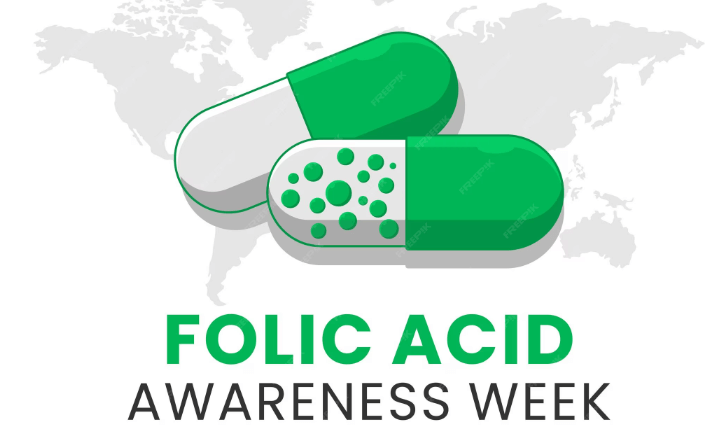Vitamin A Advantages: Enhancing Vision and Vitality

Introduction
Discover the countless advantages of vitamin A, a powerhouse nutrient that promotes both enhanced vision and vitality. Whether you’re looking to sharpen your eyesight or boost your overall well-being, vitamin A has you covered. With a focus on maintaining healthy vision, this vital nutrient helps to prevent and treat conditions such as night blindness and dry eyes. But its benefits don’t stop there – vitamin A also supports a strong immune system, healthy skin and hair, and proper cell growth and development.
Incorporating vitamin A into your diet is easier than you might think. You can find this essential nutrient in a variety of foods, including carrots, spinach, sweet potatoes, and liver. Alternatively, if you prefer a convenient supplement, there are plenty of options available on the market. Whichever route you choose, it’s important to strike a balance and not exceed the recommended dosage. So, whether you’re eager to improve your vision or boost your overall vitality, vitamin A is a nutrient you won’t want to overlook.
nbsp;
The Importance of Vitamin A for Vision
Vitamin A plays a crucial role in maintaining healthy vision. Its primary function is to support the functioning of the retina, which is responsible for converting light into visual signals that the brain can interpret. Without adequate vitamin A, the retina cannot perform its job effectively, leading to various vision problems. Additionally, vitamin A helps to prevent and treat conditions such as night blindness and dry eyes, which can greatly impact one’s quality of life.
nbsp;
How Vitamin A Enhances Vision
Vitamin A enhances vision by promoting the production of a pigment called rhodopsin, which is necessary for proper vision in low-light conditions. When light enters the eye, it stimulates the production of rhodopsin, allowing the retina to detect and process the visual information. Without sufficient vitamin A, the production of rhodopsin is compromised, resulting in reduced night vision and difficulty seeing in dimly lit environments. By ensuring an adequate intake of vitamin A, you can optimize your night vision and maintain clear and sharp vision in all lighting conditions.
nbsp;
Other Benefits of Vitamin A for Overall Health and Vitality
In addition to its impact on vision, vitamin A offers numerous benefits for overall health and vitality. One of its key roles is in supporting a strong immune system. Vitamin A helps to regulate immune responses, ensuring that your body can effectively fight off infections and diseases. It also promotes the production of white blood cells, which are essential for immune function.
Moreover, vitamin A is essential for maintaining healthy skin and hair. It promotes the production of collagen, a protein that keeps the skin supple and elastic. Vitamin A also helps to regulate oil production, preventing dryness and promoting a healthy scalp. By incorporating vitamin A into your diet or skincare routine, you can achieve a youthful complexion and lustrous hair.
Furthermore, vitamin A plays a vital role in proper cell growth and development. It is essential for the growth and maintenance of various tissues and organs, including the lungs, heart, and kidneys. Vitamin A also supports the development of healthy teeth and bones, ensuring optimal skeletal strength. By ensuring an adequate intake of vitamin A, you can support your body’s growth and development at every stage of life.
nbsp;
Food Sources of Vitamin A
To incorporate vitamin A into your daily diet, you can turn to a variety of delicious and nutritious foods. One of the most well-known sources of vitamin A is carrots. These vibrant orange vegetables are packed with beta-carotene, a compound that the body can convert into vitamin A. Spinach is another excellent source of vitamin A, along with other leafy greens like kale and collard greens. Sweet potatoes are also rich in vitamin A, making them a tasty addition to any meal. Lastly, liver, particularly beef liver, is a highly concentrated source of vitamin A.
nbsp;
Recommended Daily Intake of Vitamin A
The recommended daily intake of vitamin A varies depending on age, gender, and life stage. For adult men, the recommended daily intake is 900 micrograms of retinol activity equivalents (RAE), while adult women require 700 micrograms RAE per day. Pregnant and breastfeeding women have higher requirements, with recommended daily intakes of 770 and 1,300 micrograms RAE, respectively. It’s important to note that excessive intake of vitamin A can be toxic, so it’s essential to adhere to the recommended dosage and consult with a healthcare professional if you have any concerns.
nbsp;
Signs of Vitamin A Deficiency
A deficiency in vitamin A can manifest in various ways, affecting both vision and overall health. One of the earliest signs of vitamin A deficiency is night blindness, which makes it difficult to see in low-light conditions. Dry eyes are another common symptom, causing discomfort and a gritty sensation. In severe cases, a lack of vitamin A can lead to xerophthalmia, a condition characterized by corneal ulcers and irreversible blindness. Other signs of vitamin A deficiency include a weakened immune system, dry and rough skin, and delayed growth and development in children.
nbsp;
Precautions and Considerations When Taking Vitamin A Supplements
While incorporating vitamin A-rich foods into your diet is generally safe, taking vitamin A supplements requires some precautions. It’s important to choose a reputable brand and follow the recommended dosage provided on the packaging or as advised by a healthcare professional. Excessive intake of vitamin A supplements can lead to hypervitaminosis A, a condition characterized by symptoms such as nausea, headache, dizziness, and even liver damage. Pregnant women should exercise caution when taking vitamin A supplements, as high doses can be harmful to the developing fetus.
nbsp;
Incorporating Vitamin A into Your Daily Routine
Incorporating vitamin A into your daily routine is easier than you might think. By including a variety of vitamin A-rich foods in your meals, you can ensure an adequate intake of this essential nutrient. Start by adding carrots, spinach, sweet potatoes, and liver to your grocery list. You can enjoy these foods in a variety of ways, from roasted carrots to sauteacute;ed spinach or a comforting sweet potato mash. Experiment with different recipes and find creative ways to incorporate these nutrient-rich foods into your meals.
If you prefer a more convenient option, vitamin A supplements are readily available on the market. Look for supplements that contain retinol or beta-carotene, as these are the most bioavailable forms of vitamin A. Remember to follow the recommended dosage instructions and consult with a healthcare professional if you have any concerns or underlying health conditions.
nbsp;
Conclusion: The Power of Vitamin A for Vision and Vitality
Vitamin A is a powerhouse nutrient that offers numerous advantages for both enhanced vision and overall vitality. By incorporating vitamin A into your diet or supplement routine, you can support healthy vision, maintain a strong immune system, promote healthy skin and hair, and ensure proper cell growth and development. Whether you choose to enjoy vitamin A-rich foods or opt for a supplement, it’s important to strike a balance and not exceed the recommended dosage. So, whether you’re eager to improve your vision or boost your overall vitality, don’t overlook the power of vitamin A. Start incorporating this essential nutrient into your daily routine and reap the benefits it has to offer.


























